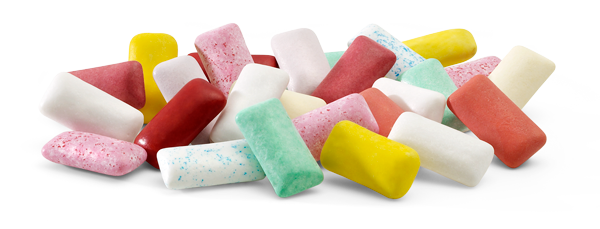
Whether you do it to help you avoid bad oral habits like smoking or nail biting, to freshen up your breath, or for other reasons, chewing gum is wildly popular. Since its creation in the 1960s, this tasty treat comes in a variety of flavors to match anyone’s taste. But, for people who have TMJ issues, can chewing gum make things worse? Keep reading to learn about this condition, how chewing gum can affect it, and what to do if you have it.
What is TMJ Dysfunction?
The temporomandibular joint, or TMJ, is the name for the joint that you have on either side of your head. It connects your lower jaw to your skull. When the TMJ becomes misaligned or injured as a result of physical stress or cartilage degeneration, this can lead to TMD, or temporomandibular joint dysfunction. This condition can cause a variety of unpleasant symptoms, such as:
- Issues chewing and opening or closing your mouth
- Chronic jaw, face, ear, neck, back, or mouth pain
- Crackles or tenderness in the joints
- Tingling or numbness in the face
- Clicking or popping in the jaw
- Headaches or toothaches
- Pain behind the eyes
- Changes in your bite
- Ringing in the ears
- Muscle spasms
- Sore throat
- Lock jaw
Can Chewing Gum Make a TMJ Disorder Worse?
So, can chewing gum make TMD worse? The muscles around the TMJ work harder than normal when chewing, which means that people with this condition may aggravate it further. You will likely begin feeling significant jaw pain and may develop a severe headache. So, unfortunately, chewing gum isn’t a good idea for those who are currently dealing with jaw problems.
How to Treat TMJ Disorder
Fortunately, there are several ways that your dentist can help. After taking X-rays and other scans to determine whether you’re truly dealing with a TMJ disorder, some treatment options they may offer include:
- Occlusal Adjustments (Equilibration): If your teeth don’t come together correctly, this may keep your jaw muscles from relaxing. Occlusal adjustments are used to slightly reshape your top and bottom teeth so they meet evenly.
- Occlusal Splints: This oral appliance can protect your teeth from grinding and clenching, which may contribute to TMD.
- BOTOX®: BOTOX® injections can relieve jaw tension and prevent the unconscious movements that often cause TMJ disorders to worsen.
- TENS Machine: TENS stands for “transcutaneous electrical nerve stimulation.” This machine uses electrical currents to stimulate pain-blocking mechanisms in your body. Additionally, it encourages the muscles in the face to relax. It’s often used in conjunction with other treatments for long-lasting relief.
About the Practice
Patients in Richardson and the surrounding communities will soon be able to eat, speak, and laugh in comfort with the help of Dr. Melody Stampe and her team at Richardson Sleep and Facial Pain Center at Cityline. They offer TMJ treatments to ease pain and discomfort so you can get back to enjoying life to the fullest. If you are interested in scheduling an appointment with Richardson Sleep and Facial Pain Center at Cityline or want more information on their services, call their office at (972) 907-1676 or visit their website.
